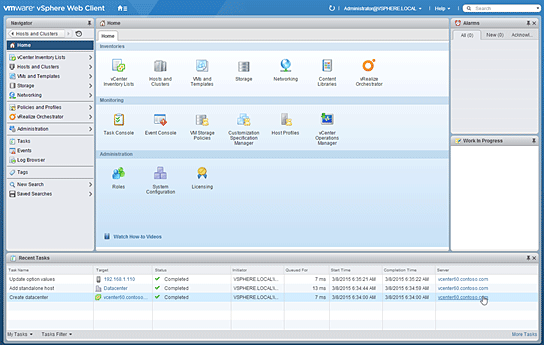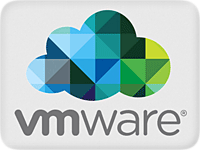VMware is expanding its embrace of Linux containers in a big way today with the launch of a pair of efforts that aim to enable a new era of cloud-native applications.
Linux containers and most notably the Docker container ecosystem have emerged in the last two years to become a highly agile way to build and deploy virtualized applications.  Early on, some considered Docker to be competitive to the Virtual Machine (VM) hypervisor model that VMware’s platform is based on, but that’s not exactly the case.
Early on, some considered Docker to be competitive to the Virtual Machine (VM) hypervisor model that VMware’s platform is based on, but that’s not exactly the case.
At VMworld 2014, VMware embraced the idea of running Docker on top of VMware infrastructure, and with the new Lightwave and Photon projects, VMware is making the next huge step forward.
Project Photon
Docker, as is the case with any Linux container, requires a Linux host on which to run. Project Photon is VMware’s new Linux distribution effort to build a container-optimized Linux operating system.
There are multiple other vendors that are pushing the idea of a container-optimized Linux distribution, including Canonical Ubuntu Snappy Core, Red Hat’s Project Atomic, RancherOS and CoreOS.
Kit Colbert, General Manager at VMware, explained that Photon is different than other attempts at a container-optimized Linux operating system.
“Photon is a Linux operating system optimized for containers running on top of a hypervisor,” Colbert said.
Photon is not based on another vendor’s Linux distribution, but rather was built from scratch by VMware. Colbert emphasized that with Photon, VMware is not trying to be a Linux distribution vendor and is not attempting to compete with existing Linux vendors either.
“Photon is running as a guest OS and will be built-in with VMware ESX. We’re not trying to monetize a new Linux distribution; we’re trying to enable simplified container operations for vSphere,” Colbert said.
Photon is not VMware’s first attempt at building its own Linux operating system. Prior to 2004, VMware also had its own Linux distribution known as ConsoleOS. Colbert explained that the need for a Linux host was dropped after 2004 as VMware added more capabilities inside its vmkernel.
Project Lightwave vs. Google Kubernetes
With Project Lightwave, VMware is now making available a cloud-native identity and access management technology that is open source. Colbert explained that Lightwave provides multiple authentication capabilities, including LDAP, Kerberos, SAML, OAuth 2.0 and OpenID connect.
The Lightwave project is not an orchestration technology in the same sense as the Google Kubernetes project.
“Kubernetes is about scheduling and orchestration, which isn’t what Lightwave does,” Colbert said. “Lightwave is purely focused on identity and authorization, so we see Lightwave potentially integrated with Kubernetes.”
Photon and Lightwave are set to be updated often in technology previews over the coming months. Colbert decline to give a specific date for general availability.
“The way Photon and Lightwave will be delivered is via a vSphere update,” Colbert said. “We’re not going to charge more money for Photon and Lightwave; they’ll just be included.”
Sean Michael Kerner is a senior editor at ServerWatch and InternetNews.com. Follow him on Twitter @TechJournalist.





